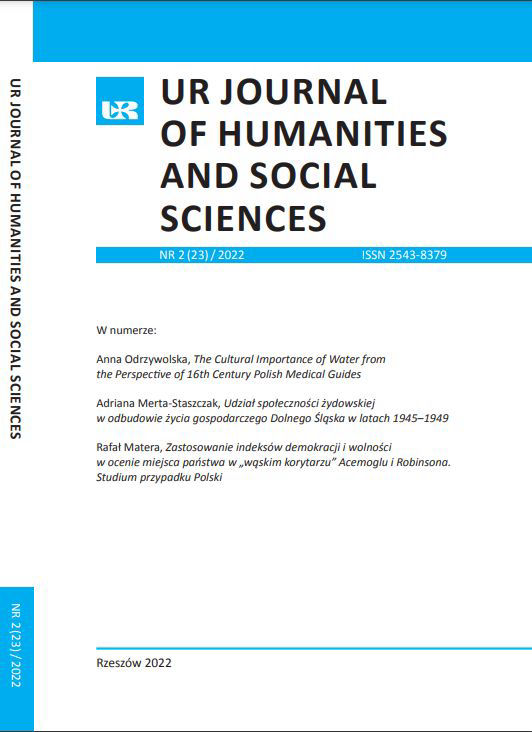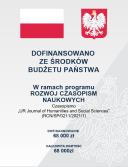The application of democracy and freedom indices in the assessment of country location in Acemoglu and Robinson’s Narrow Corridor. A case study of Poland
DOI:
https://doi.org/10.15584/johass.2022.2.6Keywords:
Acemoglu and Robinson concept Narrow Corridor, types of Leviathans, Red Queen effect, democracy and freedom indices Poland in the narrow corridorAbstract
The aim of the article is to introduce Daron Acemoglu and James Robinson’s theory of the Narrow Corridor – the space in which countries with governments that guarantee security and civil liberties and a society that can control too much government power are located. The paper also refers to the other theoretical concepts used by the aforementioned authors: the despotic, paper and shackled Leviathans and the Red Queen effect. In this paper, I examine whether the eight selected indices of democracy and freedom capture the measures needed to assess the quality of governance, the state of institutions and social capital in each country. As Acemoglu and Robinson did not define specific criteria for when a state enters and when it falls out of the Narrow Corridor, the indices of democracy and freedom were used to verify this process and assess its pillars,. This can be done by observing trends in the rankings produced by the indicated institutions. The article will also examine how Poland’s position in the rankings of democracy and freedom has changed in order to assess whether its functioning in the Narrow Corridor has been threatened.Downloads
Download data is not yet available.
Downloads
Published
2022-06-30
How to Cite
Matera, R. (2022). The application of democracy and freedom indices in the assessment of country
location in Acemoglu and Robinson’s Narrow Corridor. A case study of Poland. Journal of Humanities and Social Sciences, 23(2), 99–118. https://doi.org/10.15584/johass.2022.2.6
Issue
Section
Articles
License
Copyright (c) 2022 Wydawnictwo Uniwersytetu Rzeszowskiego

This work is licensed under a Creative Commons Attribution-NonCommercial 4.0 International License.



